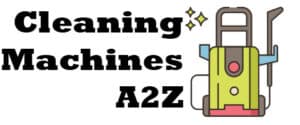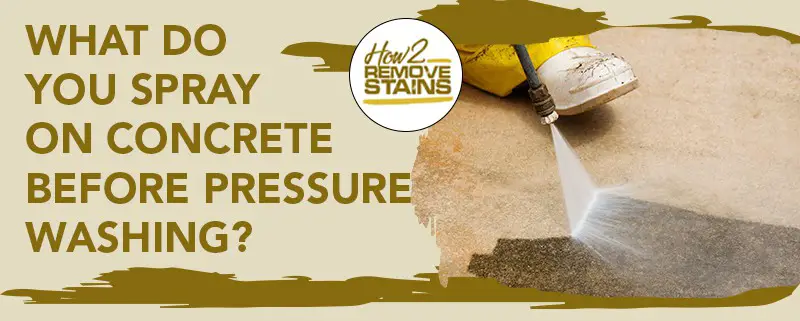Your lawn is trimmed and edged to perfection. The cars are sparkling clean. Even the garden is neatly weeded and in full bloom. But a few unsightly stains on your concrete sidewalk or driveway can ruin this entire scene.
Sometimes, simply power washing your concrete will not do the trick. For the tough stains, you’ll want to treat them with a degreasing cleaner. For the toughest of the tough, you may need trisodium phosphate, also known as TSP, which is a powerful chemical cleaning agent. Another choice is muriatic acid, which is a relative of the dangerous chemical hydrochloric acid.
Preparing the concrete surface
Do not leap directly into applying the degreaser or trisodium phosphate. First, prepare the area by removing any large stones, leaves, dirt, electrical cables, hoses, or stray kids’ toys. Once the area is completely clear, tape off any adjacent surfaces such as brick retaining walls, outlets, or garage doors to avoid damage while pressure washing.
Equipment for applying cleaners
First and foremost, make sure to wear thick work gloves. The degreasers and cleaning agents contain harsh chemicals that can damage your skin. Next, you’ll need a stiff-bristled brush or broom, whichever works for the size of your target stain. Many pressure washers have an attachment degreaser tool, so be sure to check that first before making any unnecessary purchases.
Choosing a concrete cleaner
Concrete cleaners and degreasers come in all shapes and sizes. Some are water-based, others oil-based. Some are specifically designed for your garage or oil spills, others for outdoor use. The best way to determine which to purchase is to gauge your specific cleaning goals and match them with the right cleaner.
Common cleaners
Common concrete cleaners can be broken up into several categories that you’re likely to see when shopping online. Use this list to guide your choice as to which to apply on your concrete.
Acidic
Acidic cleaners work great on efflorescence (that pesky white stain formed by salt deposits). They tend to strip the concrete’s surface, so consider applying a concrete sealer afterwards.
Alkaline
Alkaline cleaners are tough on oil spills from cars.
Bioremedial
Bioremedial cleaners are the most environmentally-safe, though not the strongest.
Ph-neutral
These cleaners are neither acidic nor base (alkaline). Ph-neutral cleaners function best indoors and on lighter stains.
Combination
Some cleaners are versatile, combining various aspects of the above groups. These can be trickier to find, but are some of the most powerful cleaners.
Choose the right cleaner for your concrete
Assess the area you want to wash. Is the space indoors or outdoors? Does the area have any stains worth treating? Are these stains deep and serious like years of oil spills or less intense such as light efflorescence around a drain pipe? Don’t purchase the most intense cleaner for a light job.
When to spring for the strong stuff
If you’ve tried and failed with normal cleaning agents or you’re just ready for a deep cleanse, it may be time to apply either trisodium phosphate or muriatic acid. In either case, be extremely careful when applying these chemicals as they are more of a last resort when cleaning your concrete.
TSP
Trisodium phosphate, or TSP, is a serious cleaning product that can rid your concrete of nasty, set-in stains. The main safety concern with TSP is to avoid mixing it with any acid, which can cause a violent reaction, creating a noxious gas. TSP is also safer than muriatic acid.
Muriatic acid
As a general rule, it is inadvisable to use muriatic acid inside. This is a very serious chemical and should not be used lightly. If you decide to use it, you’ll need full facial protection, a breathing apparatus to filter fumes and heavy clothing to cover all skin. Be sure to follow all safety guidelines. Using muriatic acid on concrete stains will ensure that your concrete is as clean as the day it was poured.
Applying the concrete cleaner
Often, concrete cleaning agents and degreasers will require dilution with water before application. Make sure not to skip this step, otherwise you may damage your concrete. You’ll want to follow the specific instructions on the cleaner you’ve purchased. Most cleaners will require spraying or pouring directly onto the target stains.
Frequently asked questions about concrete cleaners
Do I need to pretreat with a degreaser to clean my concrete driveway?
Remember that spraying or applying concrete degreasers and cleaners is for tough stains. You don’t necessarily need to use a degreaser to pretreat your concrete driveway. You may find that clearing the concrete of debris and simply pressure washing the area will remove the surface level stains. Don’t make work where you don’t need to.
What cleaner is best to apply to stains on my garage floors?
Stains that accumulate over the years under cars and around drains in the garage can be extremely set-in. In all likelihood, you’ll need to apply a tough acidic degreaser and scrub before power washing away the stains. In case that does not work, consider more powerful chemical solutions like TSP. Avoid using muriatic acid inside.
Can concrete stains be cleaned without pre-applying harsh chemicals?
Some concrete stains will wash away simply with a powerful session of washing and scrubbing, so harsh chemicals will not be necessary. In other situations, you can purchase eco-friendly cleaning agents, often called bioremedial cleaners.

